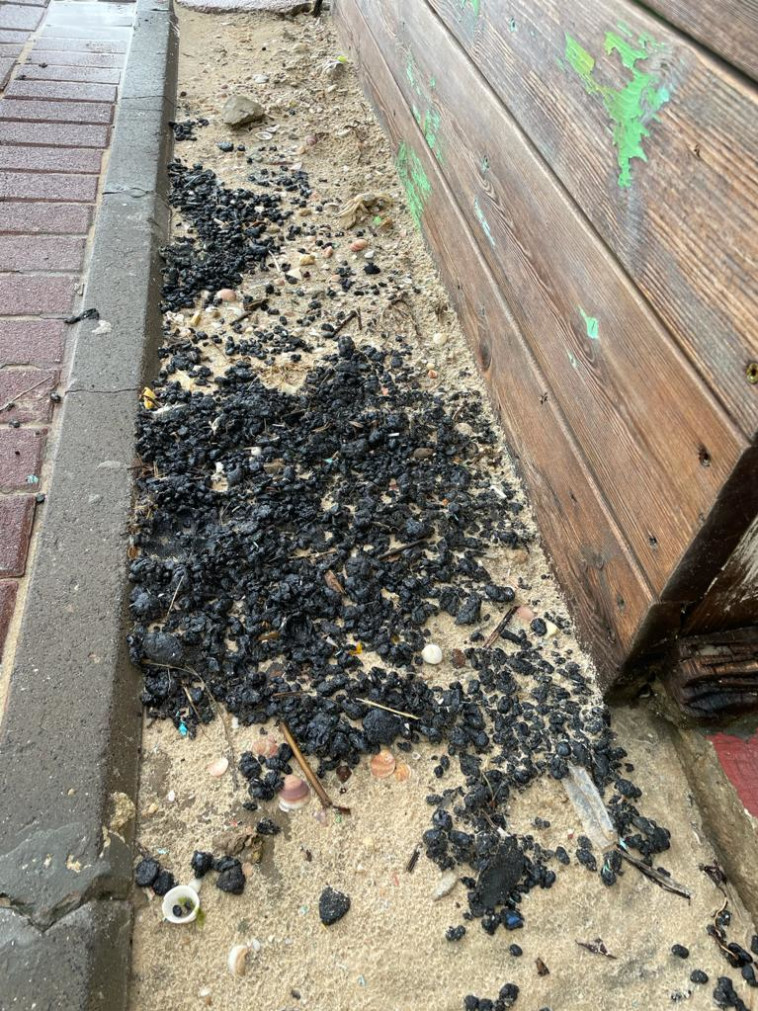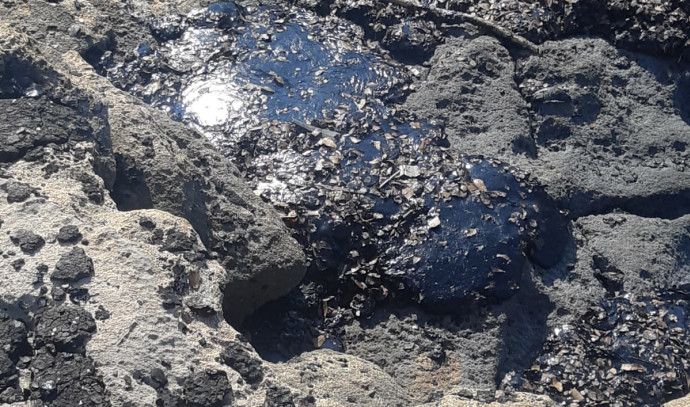The court today (Tuesday) changed the decision of the Magistrate’s Court in Haifa last night on the imposition of a restraining order on the ongoing investigation by the National Unit for the Protection of the Environment of the Ministry of Environmental Protection of the tar disaster off the coast of Israel. Under the new order, independent investigative publications on the subject were approved, so that the “pipe” publications on Channel 13 were briefly trained in retrospect, and here is news about the suspected vessel. The existing ban on the names of other suspects originating from the investigation itself has meanwhile been limited to tomorrow at 16:00.
Meanwhile, the journalists’ organization Yifat Glick and Shani Ashkenazi applied to the court last night to join as a friend of the court in the process of removing the publication ban order imposed on the Israeli Coastal Pollution case.
The Journalists’ Organization, through Dr. Adv. Moran Saborai and Adv. Amir Basha, claims that: To be surveyed – concerning a large-scale environmental pollution that has already been crowned, as stated above, as one of the most severe and severe known to the shores of the country.
“Precisely because of the importance of the incident and the extent of harm to the public in Israel, when the western canopy of the state is the longest border of the state used by the public in Israel a stable source of trade, transport and transportation, pleasure and sports, animal shelter, vegetation and fish, and breathing breathe in front of significant urban concentrations. The Israeli coast is of the utmost importance not to issue a disproportionate order, which harms the ability of the Israeli public to understand the event and its causes and to take part in a sharp and critical public discussion of the events that led to the environmental disaster.
“The broader and more unjustified the ban on publication, the more it prevents the press from fulfilling its role as the ‘watchdog’ of democracy and acting as the governing body of the authorities and pointing out failures in real time, at the time of the incident.
“Giving freedom of expression and transparency and giving the free press an opportunity to do its job will allow the public to know what is happening in real time, during or near the event itself, and will also allow the authorities to make necessary corrections. Without the possibility of the required transparency and public scrutiny, which is made possible in no small part thanks to the free press, the damage may increase, hence the public importance in revoking the restraining order. “
 Tar pollution at Nitzanim Beach (Photo: Ministry of Environmental Protection, Yitzhak Kodowitzky)
Tar pollution at Nitzanim Beach (Photo: Ministry of Environmental Protection, Yitzhak Kodowitzky)As mentioned, the Ministry of Environmental Protection announced last night that a restraining order was issued by the Honorable Justice Dr. Ziad Fallah of the Haifa Magistrate’s Court, regarding an investigation conducted by the Ministry of Environmental Protection’s National Environmental Protection Unit and the Green Police of Israel. Tar.
The order prohibits the publication of any details of the investigation and any details that may identify the suspects, including the name of the vessel, ports of departure and destination, cargo and shipping route and may be disrupted for investigation due to publication of details of ships passing in the area during the relevant period. The order is valid for seven days until February 28th.
The pollution, which began on Wednesday with the onset of stormy weather, did not miss nature reserves and national parks, from Rosh Hanikra to Nitzanim. About 160 km of Israeli shores were significantly polluted with tar.
